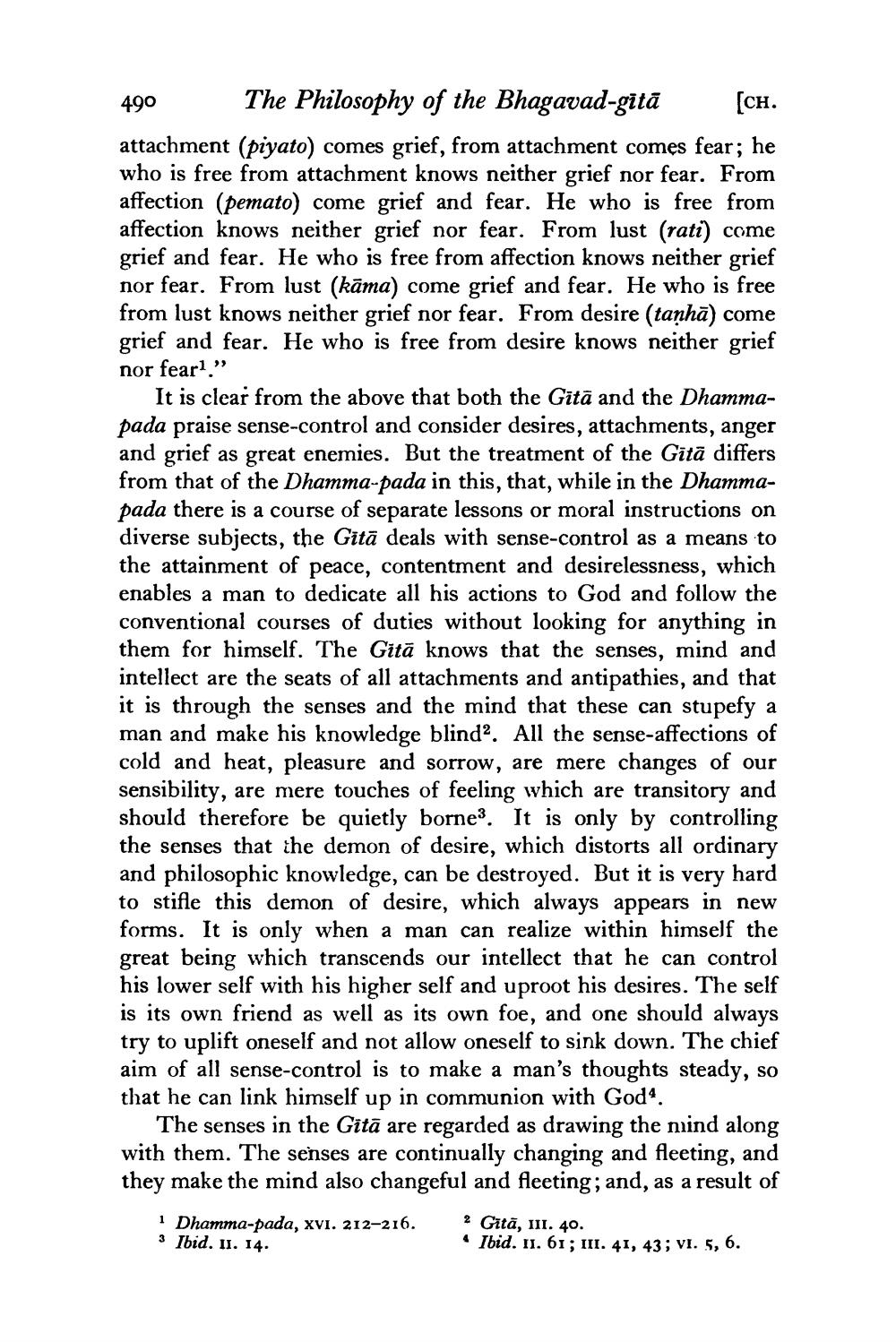________________
490 The Philosophy of the Bhagavad-gitā [ch. attachment (piyato) comes grief, from attachment comes fear; he who is free from attachment knows neither grief nor fear. From affection (pemato) come grief and fear. He who is free from affection knows neither grief nor fear. From lust (rati) come grief and fear. He who is free from affection knows neither grief nor fear. From lust (kāma) come grief and fear. He who is free from lust knows neither grief nor fear. From desire (taṇhā) come grief and fear. He who is free from desire knows neither grief nor fear."
It is clear from the above that both the Gītā and the Dhammapada praise sense-control and consider desires, attachments, anger and grief as great enemies. But the treatment of the Gită differs from that of the Dhamma-pada in this, that, while in the Dhammapada there is a course of separate lessons or moral instructions on diverse subjects, the Gitā deals with sense-control as a means to the attainment of peace, contentment and desirelessness, which enables a man to dedicate all his actions to God and follow the conventional courses of duties without looking for anything in them for himself. The Gitā knows that the senses, mind and intellect are the seats of all attachments and antipathies, and that it is through the senses and the mind that these can stupefy a man and make his knowledge blind?. All the sense-affections of cold and heat, pleasure and sorrow, are mere changes of our sensibility, are mere touches of feeling which are transitory and should therefore be quietly borned. It is only by controlling the senses that the demon of desire, which distorts all ordinary and philosophic knowledge, can be destroyed. But it is very hard to stifle this demon of desire, which always appears in new
ms. It is only when a man can realize within himself the great being which transcends our intellect that he can control his lower self with his higher self and uproot his desires. The self is its own friend as well as its own foe, and one should always try to uplift oneself and not allow oneself to sink down. The chief aim of all sense-control is to make a man's thoughts steady, so that he can link himself up in communion with Goda.
The senses in the Gitā are regarded as drawing the nind along with them. The senses are continually changing and fleeting, and they make the mind also changeful and fleeting; and, as a result of
1 Dhamma-pada, xvi. 212–216. 3 Ibid. II. 14.
2 Gitā, III. 40.
Ibid. 11. 61; III. 41, 43; VI. 5, 6.




